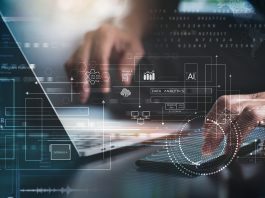Gareth Tolerton, Product Innovation Director at Totalmobile, discusses the importance of valuable AI skills and human co-operation as the technology grows.
AI is evolving at a rapid pace, and we’re seeing a growing narrative about the future of work, often framed around job losses or sweeping automation, and the replacement of humans by machines. But the reality is more subtle and less hostile.
In most industries, we’re not seeing roles replaced wholesale. We’re seeing the nature of work itself shift and evolve.
How AI is reshaping daily tasks
What’s really changing is the value chain of everyday tasks. AI excels at generating language, summarising data, and completing repeatable patterns. That means functions like content creation, coding, legal drafting and basic design are all being reshaped.
It’s not that people are being cut out. It’s that parts of their jobs are quietly becoming automated – and with that, the bar for “good enough” output drops.
That should prompt serious reflection. If AI can produce a passable first draft, human input needs to offer something more, whether this is original thinking, field expertise, or a sharper sense of context or knowledge.
Simply producing information or code won’t be and isn’t enough. The real value will lie in other critical AI skills such as the quality of the questions, the insight, and the ability to judge when something is missing, off the mark, or just not right.
The value of human skills when using AI
There is also the human element, a critical factor that’s unfortunately often underplayed in these discussions. AI skills such as empathy, leadership, and communication remain critical, arguably more so in distributed and hybrid teams. AI can mimic tone, but it doesn’t build trust, create culture, or understand the nuances of a difficult conversation. As work becomes more digital, the ability to maintain cohesion and care will be a true differentiator.
However, there are risks associated with this, of course. One is complacency – outsourcing too much, too fast. Another is standardisation. If everyone relies on the same tools to generate content or ideas, the result could be a race to mediocrity, where nothing stands out and everything becomes average. AI tools pull together existing information. They don’t generate new insight or new ideas on their own. That will always come from real, human people.
Organisations need to strike a balance too. AI should be viewed as a co-pilot or partner – useful for saving time, driving efficiency, and facilitating initial progress, but not a substitute for scrutiny, creativity, or originality.
That means setting clear boundaries around how tools are used, especially with sensitive data, while still giving people room to experiment, grow and learn in a safe environment.
Technical knowledge is one of the most critical AI skills
We also need to stop overstating what AI is capable of. We must remember that these tools are not thinking. They’re not aware. They’re just very good at predicting what word or line of code comes next. They can produce output that sounds smart, but doesn’t always hold up under real scrutiny.
If you’re not careful, you could end up trusting systems that haven’t earned that trust!
The most important AI skill in the workplace is the one that’s always overlooked. Yes, technical knowledge is important for advancement, but critical thinking—stepping back, asking better questions, and making decisions that tools alone cannot—will be where the real leadership lies.









